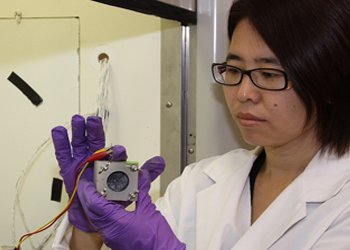US researchers claim they have made a “breakthrough” in generating electricity directly from wastewater.
Engineers at Oregon State University (OSU) have developed a new technology that significantly improves the use of microbial fuel cells (MFCs) to produce energy.
They claim it could allow wastewater treatment facilities to produce 10 to 100 times more electricity per volume compared to other similar approaches using MFC. The process involves bacteria oxidising the organic matter which produces electrons within the fuel cell and eventually creates an electric current.
The new technology could see waste treatment plants not only powering themselves but also feeding excess electricity back to the grid.
Hong Liu, an Associate Professor in the OSU Department of Biological and Ecological Engineering said: “If this technology works on a commercial scale the way we believe it will, the treatment of wastewater could be a huge energy producer, not a huge energy cost. This could have an impact around the world, save a great deal of money, provide better water treatment and promote energy sustainability.”





